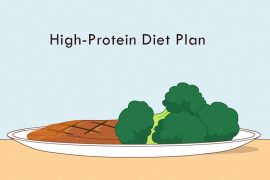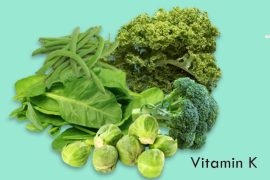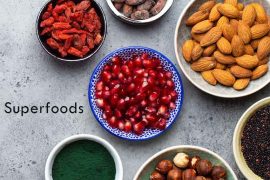Beetroot, a vibrant and versatile root vegetable, is a nutritional powerhouse packed with essential nutrients. A 100-gram serving of beetroot offers a low-calorie option while delivering a rich source of fiber, vitamins, and minerals. Notably, it contains a high concentration of nitrates, which have been linked to potential cardiovascular benefits, aiding in blood pressure regulation and overall heart health. Additionally, beetroot is a good source of antioxidants, such as betalains, known for their anti-inflammatory properties. The vegetable’s natural sweetness adds a delightful flavor to various dishes, making it a nutritious and delicious inclusion in a well-rounded diet, supporting overall health and well-being.
Beetroot, often recognized for its deep red-purple hue, offers a range of health benefits due to its nutrient-rich profile. Here’s a breakdown of the nutritional components and science-backed reasons to incorporate beetroot into your diet:
Nutritional Components of 100g Beetroot:
- Low in Calories: With approximately 43 calories per 100 grams, beetroot is a relatively low-calorie food.
- Dietary Fiber: Offering around 2.8 grams of fiber, beetroot supports digestive health and may aid in maintaining healthy cholesterol levels.
- Vitamins and Minerals: Beetroot is rich in essential nutrients like folate, vitamin C, potassium, manganese, and iron.
Science-Backed Health Benefits:
- Improved Exercise Performance: Beetroot is a natural source of nitrates, which the body converts into nitric oxide. Nitric oxide helps dilate blood vessels, improving blood flow and oxygen delivery to muscles. This can lead to enhanced exercise performance, endurance, and potentially a reduced oxygen cost during prolonged exercise.
- Lower Blood Pressure: The nitrates in beetroot not only benefit exercise performance but also contribute to cardiovascular health. Consuming beetroot may help lower blood pressure levels, reducing the risk of heart-related ailments.
- Enhanced Cognitive Function: Some research suggests that the nitrates in beetroot may improve blood flow to the brain, potentially enhancing cognitive function and slowing cognitive decline, especially in older adults.
- Anti-Inflammatory Properties: Betaine, a compound found in beetroot, exhibits anti-inflammatory properties that may help in reducing inflammation, supporting overall health and potentially benefiting conditions like osteoarthritis.
- Detoxification and Liver Health: Betalains, the pigments that give beetroot its vibrant color, have been studied for their potential detoxifying effects and support for liver function.
- Rich in Antioxidants: Beetroot contains potent antioxidants, including betalains and vitamin C, which combat oxidative stress, reduce cell damage, and may lower the risk of chronic diseases like heart disease and certain cancers.
Incorporating beetroot into your diet, whether raw, cooked, or juiced, can be a flavorful and nutritious way to support overall health. However, it’s essential to consult with a healthcare professional for personalized advice, especially if you have existing health conditions or are considering significant dietary changes.
Disclaimer:
The information contained in this article is for educational and informational purposes only and is not intended as a health advice. We would ask you to consult a qualified professional or medical expert to gain additional knowledge before you choose to consume any product or perform any exercise.







